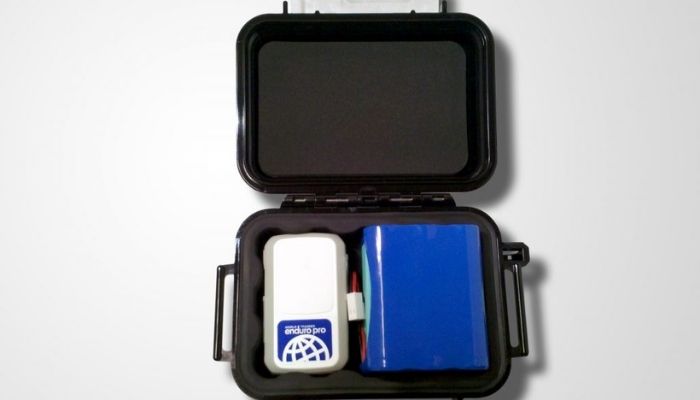In today’s fast-paced world, the need for reliable and efficient tracking solutions has grown exponentially. Whether it’s for personal safety, vehicle management, or protecting valuable assets, GPS trackers have become indispensable tools. These small, unassuming devices are designed to keep tabs on your belongings and loved ones, offering real-time location data and peace of mind. But what sets some GPS trackers apart from the rest? The answer lies in the often-overlooked aspect of battery life.
In this comprehensive guide, we will delve into the world of GPS trackers, exploring what they are, how they work, and their significance across various applications. We’ll pay particular attention to the benefits of a long-lasting battery, and we’ll discuss the factors that influence the battery life of a GPS tracker. Finally, we’ll provide an overview of some of the best GPS trackers with the longest battery life available on the market today.

What is a GPS Tracker?
A GPS (Global Positioning System) tracker is a small electronic device that communicates with a network of satellites to determine its precise location. Once it obtains its coordinates, it can transmit this information to a central server, which can then be accessed by the user through various means, such as a mobile app or a web portal.
GPS trackers are incredibly versatile and have a multitude of applications, including:
1. Personal Tracking
For personal safety and security, GPS trackers can be used to keep an eye on family members, especially children and the elderly. They can be discreetly attached to personal belongings or carried in a pocket or bag.
2. Vehicle Tracking
Businesses and individuals often use GPS trackers to monitor the whereabouts and performance of vehicles, ensuring safety, improving efficiency, and reducing operational costs.
3. Asset Tracking
High-value assets like containers, trailers, and equipment can be equipped with GPS trackers to protect against theft or loss. These devices offer real-time tracking, enabling rapid recovery in the event of theft.
4. Fleet Management
Companies with large vehicle fleets can utilize GPS trackers to optimize routing, improve fuel efficiency, and enhance driver safety.
5. Pet Tracking
For pet owners, GPS trackers can provide peace of mind by helping to locate lost pets quickly.

Benefits of Long Battery Life
The battery life of a GPS tracker is a crucial factor that significantly impacts its performance and usability. Here are some key benefits of having a GPS tracker with a long-lasting battery:
1. Reliability
A GPS tracker with extended battery life ensures that you can rely on it for an extended period without frequent recharging or battery replacement. This is especially important in scenarios where continuous tracking is essential.
2. Convenience
Long battery life means less hassle. You won’t have to worry about recharging the device every few days or changing batteries regularly. It simplifies the maintenance of the tracker.
3. Peace of Mind
Knowing that your GPS tracker won’t suddenly run out of power provides peace of mind, especially when it comes to the safety and security of loved ones or valuable assets.
4. Reduced Maintenance Costs
Long battery life reduces the overall cost of ownership. You’ll spend less on replacement batteries and maintenance, making it a cost-effective solution in the long run.
Factors Affecting Battery Life
Several factors can influence the battery life of a GPS tracker. Understanding these variables is crucial in selecting the right tracker for your specific needs:
- Frequency of Updates: How often the GPS tracker sends location updates can significantly impact battery life. Frequent updates drain the battery faster, while less frequent updates extend the life.
- 2. Type of Network: The type of network connectivity used by the tracker plays a role. 2G, 3G, and 4G networks have varying power requirements, with newer networks like 4G typically being more power-efficient.
- 3. Quality of Signal: Weak or fluctuating signals can force the tracker to use more power to maintain a stable connection, reducing battery life.
- 4. Size of the Device: Smaller GPS trackers typically have smaller batteries, which can limit their battery life. Larger devices can accommodate larger batteries, resulting in longer life.
- 5. Environmental Conditions: Extreme temperatures and harsh environmental conditions can affect battery performance. High heat or cold can reduce the battery’s efficiency.
Best GPS Trackers With Longest Battery Life
Now, let’s take a closer look at some of the best GPS trackers on the market that offer extended battery life:
1. Family1st Portable GPS Tracker
- Battery Life: Over 14 days
- Connectivity: 4G
- Features: Alexa integration, weatherproof and water-resistant hardware, geofencing, safe zone notifications.
The Family1st Portable GPS Tracker is an ideal choice for personal tracking needs. With its impressive battery life and reliable 4G connectivity, it keeps you connected to your loved ones and belongings. The device is durable, weatherproof, and water-resistant, ensuring it performs well in various conditions.
2. EverLast Nano
- Battery Life: Up to 10+ years
- Connectivity: 4G (USA, Canada, Mexico)
- Features: Magnetic design, waterproof and magnetic case, user-friendly online track platform.
The EverLast Nano is a long-term solution for vehicle tracking and fleet management. With its incredible battery life, it provides peace of mind and reduced maintenance. The magnetic design and waterproof case make it easy to install, and the user-friendly online platform offers real-time tracking and reporting.
3. SpaceHawk
- Battery Life: Up to 72 hours
- Connectivity: 4G (many parts of the world)
- Features: Mini GPS tracker, small and waterproof, powerful magnetic mount.
The SpaceHawk is perfect for hidden tracking or discreet surveillance. While it doesn’t offer the longest battery life on this list, its compact size, waterproof design, and powerful magnetic mount make it an excellent choice for catching a cheating spouse or monitoring assets.
4. Remora
- Battery Life: Up to 10+ years
- Connectivity: 2G/3G/4G (over 190 countries)
- Features: Ultra-rugged GPS asset tracking, Bluetooth gateway, tamper detection, low power modes.
The Remora GPS tracker is a robust solution for tracking high-value assets like containers, trailers, and equipment. With a battery life of up to a decade, it ensures long-term protection and security. It offers extensive connectivity options, including 2G, 3G, and 4G, making it suitable for global applications.
Conclusion
In a world where staying connected and informed is essential, GPS trackers have become invaluable tools. Whether you’re looking to protect your loved ones, monitor your vehicles, safeguard valuable assets, or enhance fleet management, GPS trackers offer a multitude of benefits.
When selecting a GPS tracker, remember that the battery life is a crucial factor that can greatly impact its performance and convenience. A GPS tracker with a long-lasting battery provides reliability, convenience, peace of mind, and reduced maintenance costs. To make an informed choice, consider the factors that influence battery life, such as update frequency, network type, signal quality, device size, and environmental conditions.
To get the most out of your investment, explore the market’s top GPS trackers with the longest battery life. Devices like the Family1st Portable GPS Tracker, EverLast Nano, SpaceHawk, and Remora offer impressive battery life and a range of features suited to various tracking needs.
In the end, the best GPS tracker for you will depend on your specific requirements and preferences. So, take the time to research, compare, and choose the device that maximizes your peace of mind while meeting your tracking needs. With the right GPS tracker in your toolkit, you can rest assured that you have a reliable companion for all your tracking and monitoring needs.
Frequently Asked Questions (FAQs)
Here are some frequently asked questions and answers about The Power of Long Battery Life in GPS Trackers
1. What Is The Typical Battery Life I Can Expect From A GPS Tracker With A Long-Lasting Battery?
The battery life of a GPS tracker varies widely depending on the model and usage. While some GPS trackers can last for a few days, others are designed to operate for several years. It’s essential to consider your specific tracking needs when choosing a device.
2. Can I Recharge The Battery In GPS Trackers With Long Battery Life?
Some GPS trackers with long battery life are rechargeable, while others use replaceable batteries. It’s crucial to check the specifications of the tracker you choose. Rechargeable models can be convenient as they eliminate the need for frequent battery replacements.
3. How Often Should I Expect To Receive Location Updates From A GPS Tracker With An Extended Battery Life?
The frequency of location updates depends on the settings you configure for your GPS tracker. Some trackers allow you to choose how often they send updates, whether it’s every minute, hour, or day. Keep in mind that more frequent updates can consume more power and may reduce battery life.
4. Are There GPS Trackers With Long Battery Life That Work In All Parts Of The World?
GPS trackers often rely on cellular networks to transmit data, and the availability of these networks can vary by location. While some trackers offer global coverage, it’s essential to check their network compatibility for the regions where you plan to use them. Additionally, some trackers have multiple network options, such as 2G, 3G, and 4G, which can affect their global usability.
5. What Are Some Key Features To Look For When Selecting A GPS Tracker With A Long-Lasting Battery?
When choosing a GPS tracker, consider the features that align with your specific needs. Some essential features to look for include real-time tracking, geofencing capabilities, tamper detection, and user-friendly tracking platforms. The choice of features depends on your tracking objectives, whether it’s personal safety, vehicle management, or asset protection.